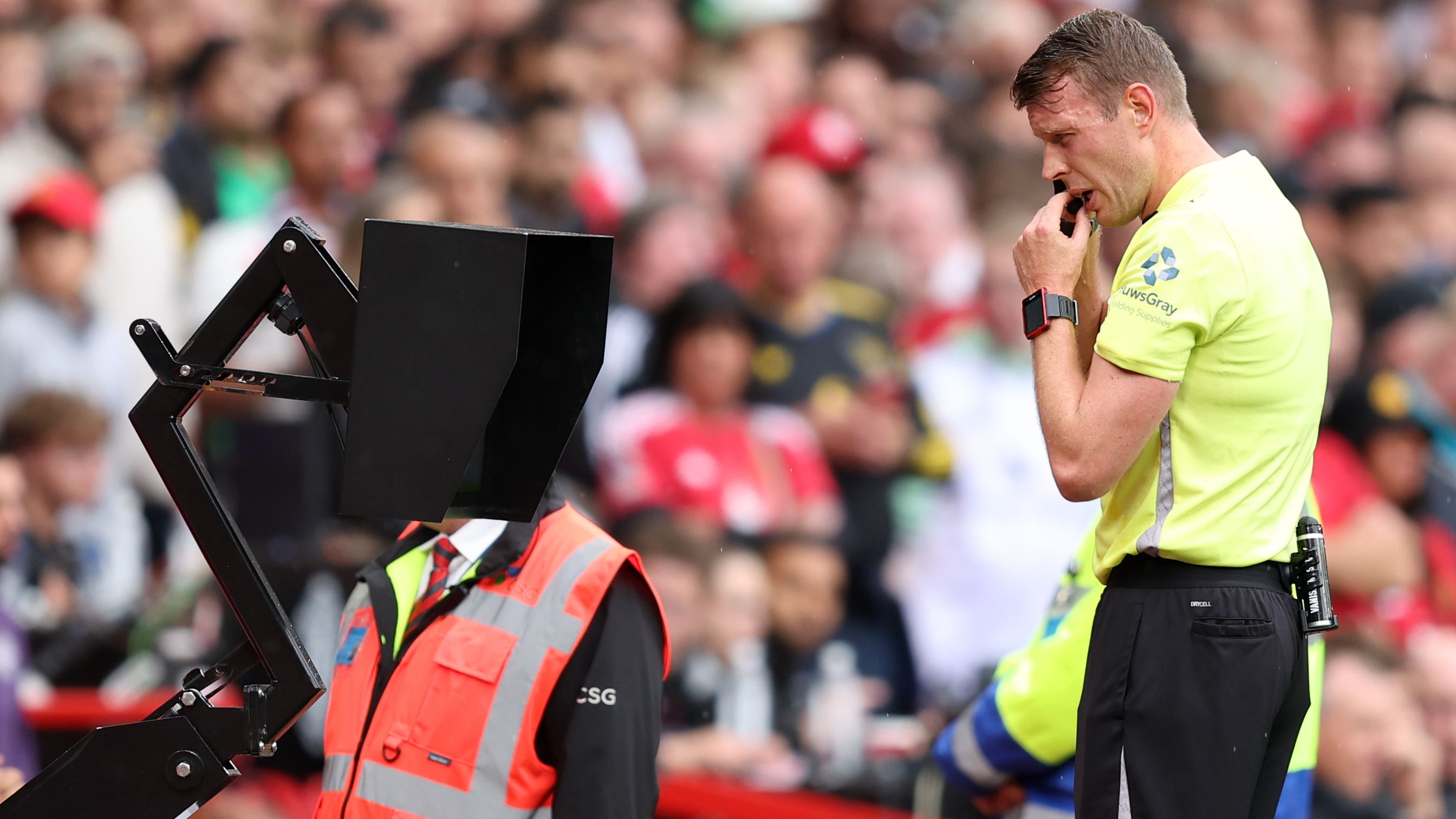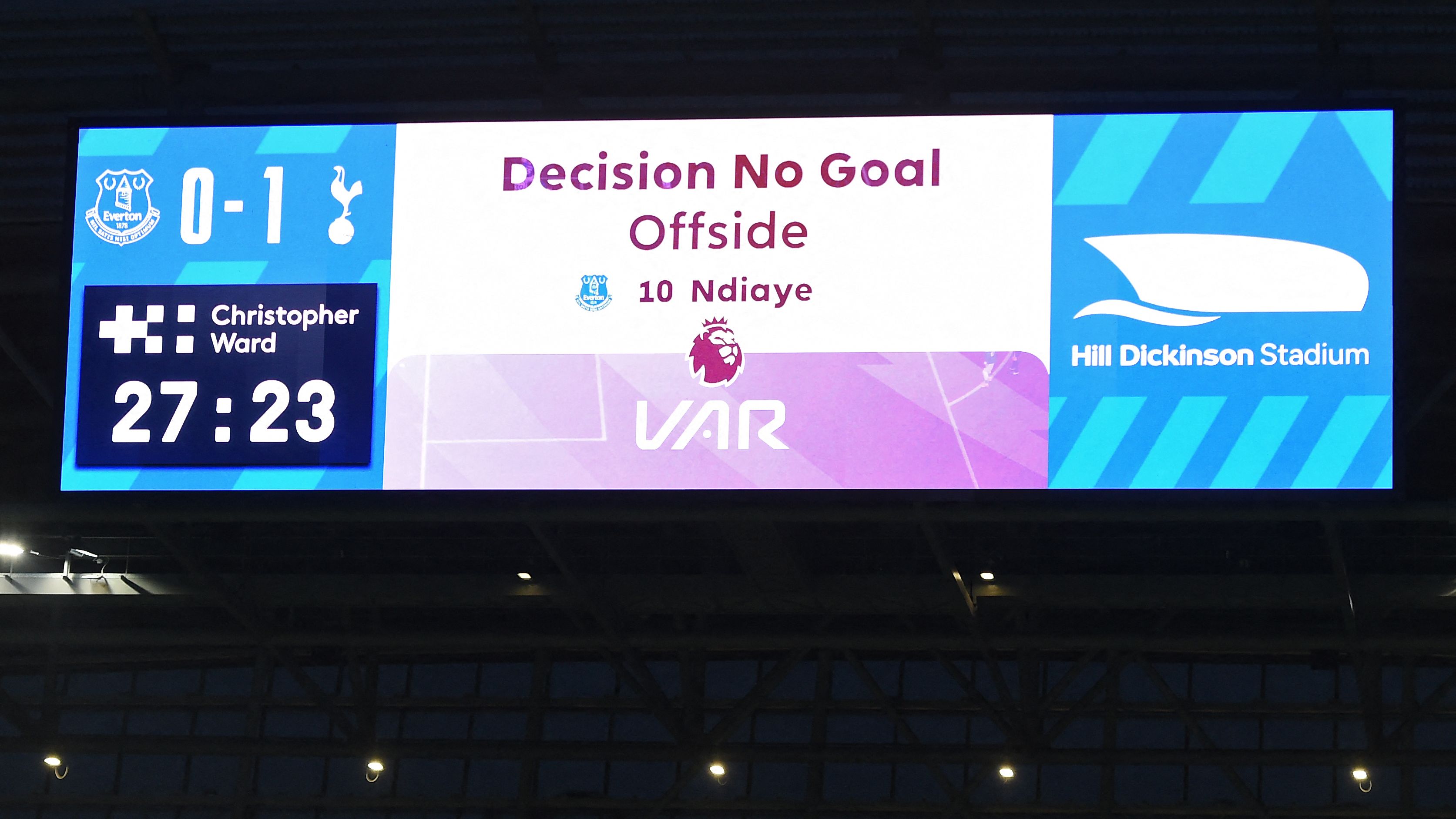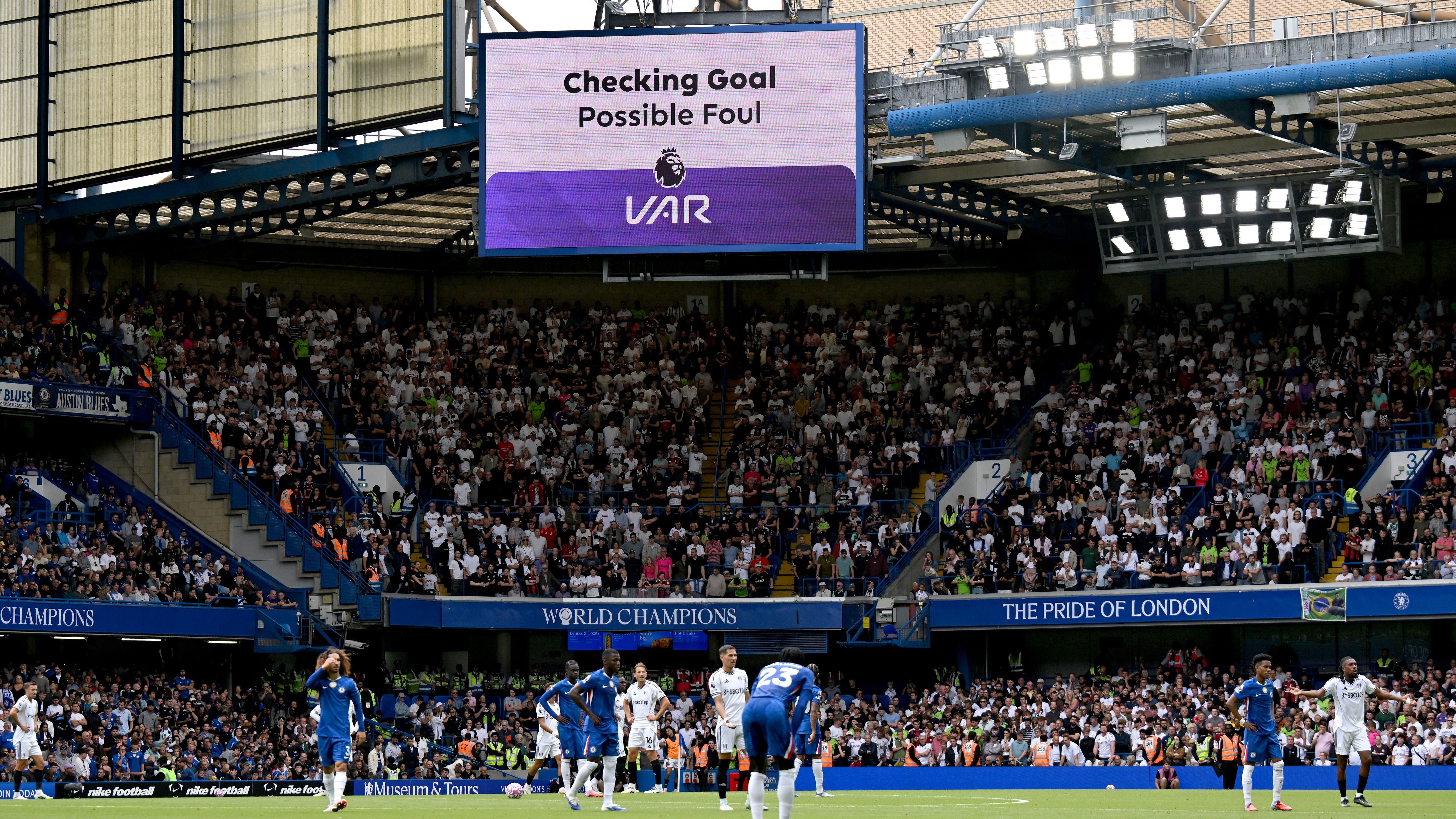Transforming VAR: Potential Overhauls to Enhance Football Fairness
In the ever-evolving world of football, the Video Assistant Referee (VAR) system is on the brink of major updates that could reshape how the game is officiated. These changes aim to make matches faster and more transparent, addressing long-standing issues that have divided fans and experts alike. VAR, second yellow cards, and IFAB proposals are at the heart of this discussion, potentially leading to a more efficient and equitable sport.



Innovations to Accelerate Play and Boost Referee Interactions
The governing body, IFAB, is examining ideas focused on quickening the pace of matches and fostering better dialogue between officials and teams. One innovative suggestion extends the current eight-second timer-typically enforced for goalkeepers in possession-to encompass actions like throw-ins and goal kicks, all to combat unnecessary delays that disrupt the game’s flow.
Enforcing Clearer Communication Protocols
Experts recommend turning the informal guideline, which limits discussions with referees to team captains only, into a strict requirement. This season has seen the eight-second rule invoked on a couple of occasions, including instances where Martin Dubravka held onto the ball too long in a Burnley versus Tottenham encounter, and Caoimhin Kelleher faced similar scrutiny in Brentford’s clash with Liverpool. In a notable case, Brentford’s drawn-out approach took over nine minutes and 18 seconds for merely ten throw-ins at the Gtech Community Stadium, sparking debates on tactical stalling.
IFAB’s Stance on VAR Enhancements and Game Interruptions
An official declaration from IFAB highlights ongoing talks about refining the VAR framework. Key points include granting video match officials the authority to step in if a mistaken second yellow card is issued. This matter will be presented at IFAB’s Annual Business Meeting scheduled for 20 January 2026 in London. Discussions also explored adapting the timing mechanism to throw-ins and goal kicks, alongside strategies to minimize pauses from injuries and player swaps, ultimately aiming for a smoother game experience.
The Persistent Challenges of VAR Implementation
Introduced in 2019, the VAR technology has sparked endless debates despite its goal of boosting accuracy in rulings. It has left spectators, athletes, and coaches frustrated due to its uneven application and sluggish processes. Detractors claim it has stripped away the thrill of live matches by delaying celebrations and eroding the spontaneity. For instance, ex-Tottenham manager Ange Postecoglou expressed concerns, stating, “This ongoing weakening of officials’ control is undermining their role entirely.” Similarly, Anthony Gordon voiced frustration over a 2023 non-penalty call, remarking, “I’m fine with on-field errors, but VAR’s purpose escapes me. Scrap it or improve it-it’s straightforward, as errors are rampant.” Even with acknowledged blunders, such as the widely criticized Luis Diaz offside call at Tottenham in 2023, the Premier League asserts that VAR has improved decision accuracy overall. Yet, a 2024 YouGov survey indicated that almost 90 percent of stadium attendees desire modifications or complete removal, with most favoring adjustments to tackle delays and poor communication.
Potential Expansion and Opposition Within the Sport
There’s uncertainty about whether incorporating second yellow cards into VAR reviews will proceed, met with pushback from key figures in English football. Mark Bullingham, FA chief executive and IFAB board member, shared in a July BBC interview: “IFAB regularly debates VAR’s evolution and future. We believe it’s functioning well currently. If a new proposal arises, we’ll review it collectively, but we don’t see a need for further expansion right now, given the existing disruptions to gameplay.”
Understanding the Current VAR System
In the fast-paced world of football, Video Assistant Referee (VAR) has become a game-changer since its introduction, helping officials make more accurate decisions on key moments like goals, penalties, and red cards. But as VAR technology evolves, there’s growing talk about a potential VAR overhaul that could extend its reach to reviewing second yellow cards. This change, however, is facing strong opposition from the FA, sparking debates among fans, players, and experts alike.
How VAR Operates in Matches
VAR, which stands for Video Assistant Referee, is a system designed to assist on-field referees by reviewing incidents using multiple camera angles and slow-motion replays. Typically, it’s used for four main situations: checking if a goal was scored legally, reviewing penalty decisions, assessing direct red card offenses, and correcting cases of mistaken identity.
What you might not know is that under the current International Football Association Board (IFAB) rules, VAR doesn’t intervene for second yellow cards, which lead to a player’s dismissal. This means that if a referee issues a second yellow in quick succession, there’s no opportunity for a review, even if new evidence suggests it was a misjudgment. This gap in the system has led to calls for a VAR overhaul to make the process fairer and more transparent.
The Proposed Overhaul for Second Yellow Cards
Advocates for change are pushing for a significant VAR overhaul that would allow officials to review decisions resulting in a second yellow card. This could involve the VAR team stepping in to scrutinize the incident before the player is sent off, potentially overturning the call if it’s deemed incorrect.
Key Elements of the Proposed Changes
- Expanded Review Scope: Under the new proposals, VAR officials would have the authority to recommend a review for any second yellow card issued during a match. This might include incidents like subtle fouls or misinterpretations of player intent, ensuring that only clear errors are corrected.
- Time Limits and Protocols: To keep the game flowing, reviews would need to be swift, perhaps limited to under two minutes, similar to existing VAR processes. This could involve the referee communicating with the VAR hub via headsets for real-time feedback.
- Technology Integration: Enhanced use of AI-driven tools, such as advanced analytics for foul detection, could play a role in this VAR overhaul, making decisions faster and more data-informed.
This shift aims to address inconsistencies in refereeing, especially in high-stakes competitions like the Premier League or Champions League, where VAR controversies often dominate headlines.
Reasons Behind the Push for VAR Overhaul
The demand for including second yellow cards in VAR reviews stems from a desire to enhance fairness and reduce human error in football. Supporters argue that football has become too reliant on split-second decisions, and technology could help level the playing field.
Potential Benefits of Reviewing Second Yellow Cards
- Increased Fairness for Teams: Imagine a crucial match where a player receives a second yellow for what looks like a minor tangle, only for replays to show it was accidental. Allowing VAR to step in could prevent unjust dismissals, giving teams a better chance at a fair outcome and reducing frustration among fans.
- Improved Player Safety and Morale: By minimizing erroneous send-offs, this VAR overhaul could cut down on unnecessary injuries or heated confrontations, as players might feel more confident that their actions are being judged accurately.
- Enhanced Viewer Experience: For football enthusiasts tuning in from home, seeing VAR handle second yellow cards could make broadcasts more engaging, with real-time explanations adding to the excitement without overly disrupting the game.
Criticisms and Potential Drawbacks
On the flip side, not everyone is on board. Critics worry that expanding VAR’s role could lead to longer match stoppages, disrupting the natural flow of football. There’s also the risk of over-reliance on technology, which might erode the authority of on-field referees and lead to more appeals or disputes.
FA’s Opposition to the VAR Overhaul
The Football Association (FA) has been a vocal opponent of this proposed VAR overhaul, citing concerns about its practicality and impact on the sport. Their stance reflects a broader tension between tradition and innovation in football governance.
Key Arguments from the FA
- Risk of Overcomplication: FA officials argue that adding second yellow cards to VAR’s remit could overwhelm referees and delay games even further. They point to data from recent seasons showing that current VAR usage already adds an average of three to four minutes per match.
- Preserving the Human Element: In a conversational tone, let’s face it-football is as much about the drama of human judgment as it is about the rules. The FA maintains that referees need to make on-the-spot calls to keep the game’s spirit alive, and a full VAR overhaul might strip away that excitement.
- Implementation Challenges: Bullet points aside, the FA highlights logistical issues, such as the cost of upgrading VAR systems across leagues and ensuring consistency in how reviews are applied globally. They fear this could widen disparities between top-tier and lower-tier competitions.
This opposition isn’t just theoretical; it’s influenced by feedback from managers, players, and even fan surveys, which often criticize existing VAR delays.
Impact of the VAR Overhaul on Football
If the VAR overhaul moves forward despite FA opposition, it could reshape how football is played and perceived.
Effects on Players and Teams
- For players, this could mean fewer wrongful dismissals, allowing them to stay on the pitch and influence the game more positively.
- Teams might adapt their strategies, knowing that certain tackles or challenges could be reviewed, potentially leading to a more cautious but fairer style of play.
Effects on Referees and Officials
Referees could benefit from reduced post-match scrutiny, as VAR would handle more contentious decisions, but they’d also need additional training to collaborate effectively with the technology. On the downside, this might increase pressure on VAR officials to get every call right.
In the broader context of football refereeing trends, this potential overhaul represents a pivotal moment, with ongoing discussions at IFAB meetings likely to influence future rules. As debates continue, keywords like “VAR in football” and “second yellow card reviews” are buzzing in sports media, highlighting the topic’s relevance to fans worldwide.









